Weight
6.9oz / 195 g for men’s US9
Stack height
9mm + 3.5mm insole
Zero Drop
Made for
Road running
Everyday casual
Fit
Wide toe box
Forgiving Midfoot
Soft Heel
Feel
Mid stack height
Semi-natural gait
Flexible
Pros & Cons
+ Comfortable
+ Durability
– Retains heat
My readers often complain that Xero Shoes and Vivobarefoot need to be wider. And I get it. Our feet are different, and different feet require different solutions. Today’s solution is the Lems Primal 2!
The Lems Primal 2 has a drastically different design than you’d see from many other barefoot brands. A more durable upper than you’d typically see on hiking options. An outsole that rounds to mimic a human foot. And a fit that’s suited to the American market. I’ll expand on that last part later.
So, if you’re in the market for a new minimal shoe with the ultimate flexibility, is wider than your average Joe, and feels comfortable straight out of the box, keep reading because the Lems Primal 2 could be for you!
Pretty great! But they may not be for everyone.
What size to order?
I ordered my usual size, and it was almost too short. It would have been too short if my splay had been wider or my foot had been a few millimeters longer. The issue is that Lems only makes full sizes, so it would have been too long if I had chosen a full size larger.
If you have a wide-toe splay, choose the next size up. So, for example, if you’re a US8 or a US8.5, choose a US9. But if you have a relatively narrow foot or a splay that is not too wide, stick with your standard size.
Which minimal running shoe is for you?
Take a quick 5-question quiz to identify the perfect minimal running shoe for your feet! You'll get both road and trail options based on your answers!
Is the toe box actually wide?
The Primal 2 toe box is wider than Vivobarefoot and Xero Shoes! This is the whole reason I got away with a slightly shorter shoe! There’s ample room for the big toe and the little toes for most of us. But if you have a very, very large splay (2-3% of us), you’re best looking into Softstars instead.
There’s also plenty of room to wiggle the toes, too. The amount of room isn’t confined to the width; you’ll also find a bunch of depth in the toe box. I could wiggle my toes up and down with a nice amount of freedom, creating a genuinely barefoot feel.
Is the upper forgiving?
The upper materials are soft and pliable, creating a comfy but loose fit. I expected a stiffer material, but it’s pretty soft and softens over time. That makes a super comfortable fit around the whole foot but can lead to a slight feeling of slipping over the top of the sole. When I gave the laces a good tug, all was fine. Just don’t expect these shoes to work for sports like CrossFit or court sports.
The soft suede-like (vegan) material offers a comfortable fit but keeps the heat in. Some will be pleased to find out this material is not real leather (I was surprised; it’s quite convincing!), and as I said, it’s really comfortable. One downside is heat retention. I’ve mainly been running in moderately warm temps (70F/20C), and I found my feet overheated fairly quickly.
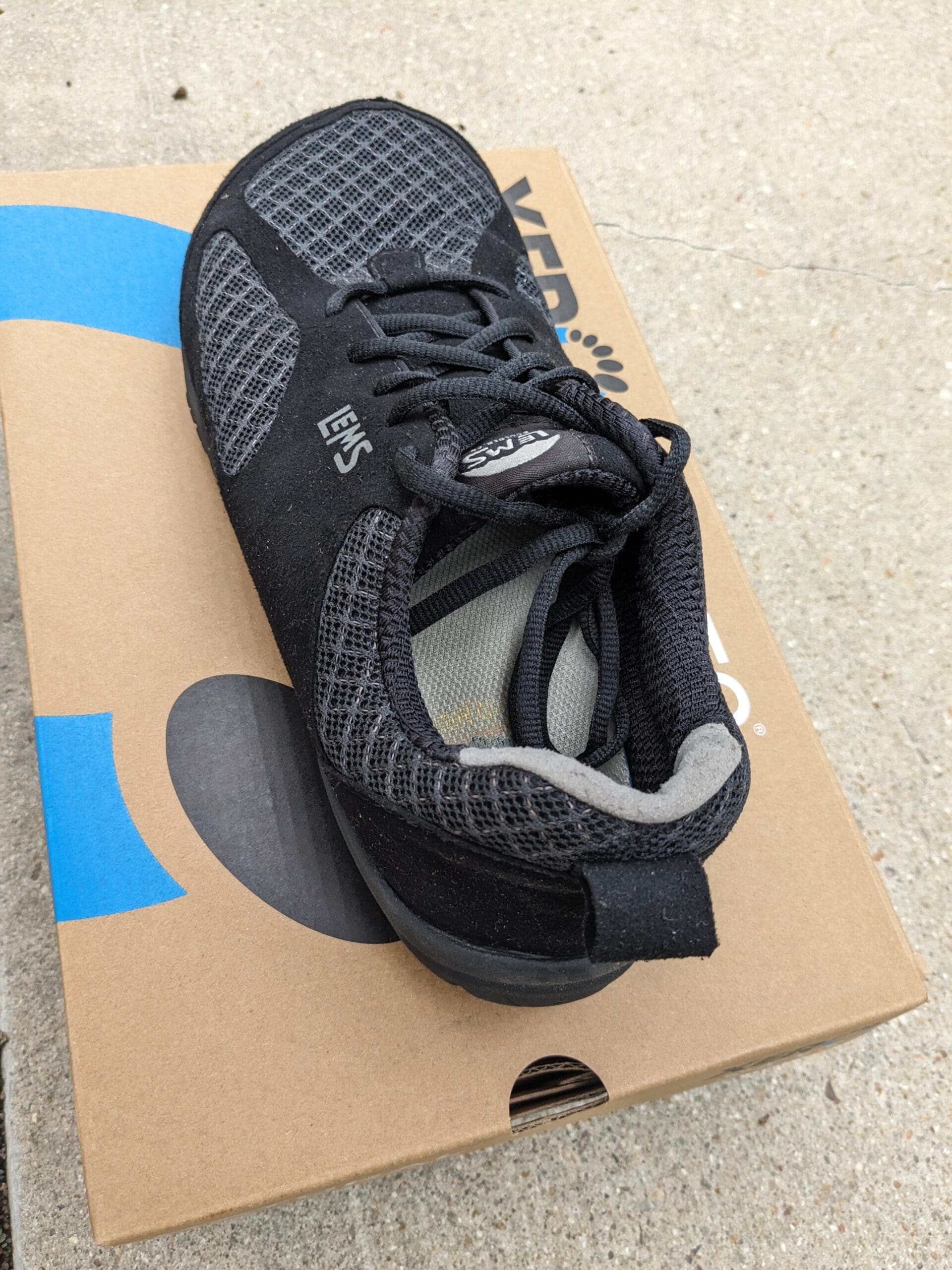
Does the heel lock in place?
A soft heel counter helps wrap around the ankle precisely. One reason I love barefoot shoes is because the heel counter is soft! No plastic, like you see in athletic shoes. And that leads to an excellent heel lock.
Even though there’s a lack of a second eyelet for lace locks, the lacing is still adequate. This may be an issue for some with narrow or shallow feet, but many of you won’t need the second eyelet. The fit around the heel is more than good enough to lock you in place.
Will they accommodate shallow and deep feet?
There’s plenty of room for those with deep feet. The shoe tends to fit most depths. If you’re super deep, simply remove the insole, and you’ll be fine. Otherwise, keep the insole in, and you’ll have plenty of opportunity to get a good lockdown with the lacing.
Is the flexibility like a true barefoot shoe?
Even with a slightly moderate stack height, there’s fantastic flexibility. A higher stack height usually correlates with a less flexible shoe. And because the Lems Primal 2 is somewhat higher than other minimal options, I expected reduced flexibility. But that’s not true. The Primal 2’s are flexible in every direction and promote a great barefoot feel.
The upper allows your feet to move how they would if they were free! It’s not all about the sole, too. The upper provides excellent flexibility, which is good and bad. It is good because it allows your foot to move in a proper barefoot motion, but it is bad because the lockdown tends to feel sloppy.
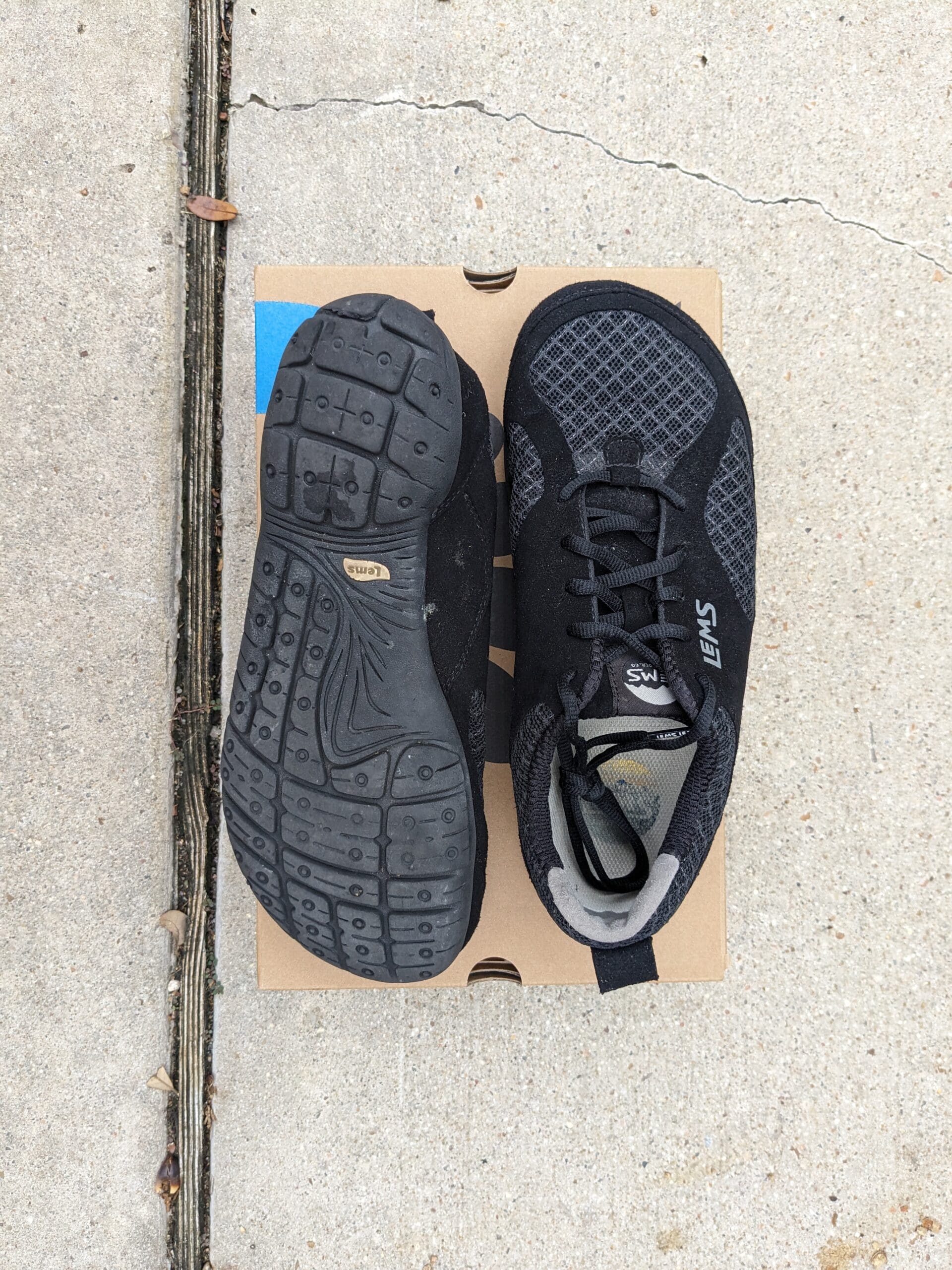
What is the ground feel like?
There’s a fine line between barefoot and minimal, and the Primal 2 is not entirely barefoot. You don’t feel everything underfoot, but for most, you feel enough. For true barefoot training, getting a shoe that puts you as close to the ground as possible is a benefit. That’s not always true for older individuals, though. The fat pads in our feet reduce as we age, meaning our natural cushioning is depleted. For those people, a little more cushion can help (We’re still talking single or low double digits mm, not 20, 30, 40mm!)
Take the insole out, and you’ll gain a little more feel. Taking the insole out reduces the stack height by 3mm, achieving more ground feel. At the same time, this also makes the shoe fit deeper, so not all of you can do this.
The outsole is rounded, precisely like a bare foot. This is a design you don’t see in many shoes, and I’m not 100% convinced it’s great for everyone. Flatter soles tend to push your foot into a straight, flat position, whereas these soles force the ankle and lower leg to do the work to align the foot when landing. If you’re already used to barefoot or zero drop shoes, this sole will work well for you. But if you’re new to barefoot, just slowly work into the Primal 2s.
Are the Lems Primal 2 zero drop?
The Lems Primal 2 are zero drop; just beware, not all Lems models are. Don’t be fooled by the Lems lineup! Not all the models are zero drop. That’s not a huge issue; just ensure you understand that when looking at other Lems models.
What type of runs are they suited to?
They wouldn’t be my first choice to practice my barefoot running. If you want a minimal shoe to practice barefoot running in, I wouldn’t suggest the Primal 2. It’s not minimal enough. But for longer runs and older runners, it can work well. It’s all about personal preference.
I’m impressed with the overall quality of the build. And I imagine the Primal 2 will outlast most Xero Shoes and maybe Vivobarefoot shoes, too!
Can the upper withstand scuffs and scrapes?
I can’t believe the upper is not real suede. As I said before, I was surprised the upper is not real leather. The suede feels legit! And that also means it feels sturdy. If you happen to catch the material on bushes or curbs, it’s not going to rip.
The crease points are reinforced around the shoe. Again, because of this suede-like material, even the crease points of the shoe will likely not cause any issues! I’m very impressed with the upper design.
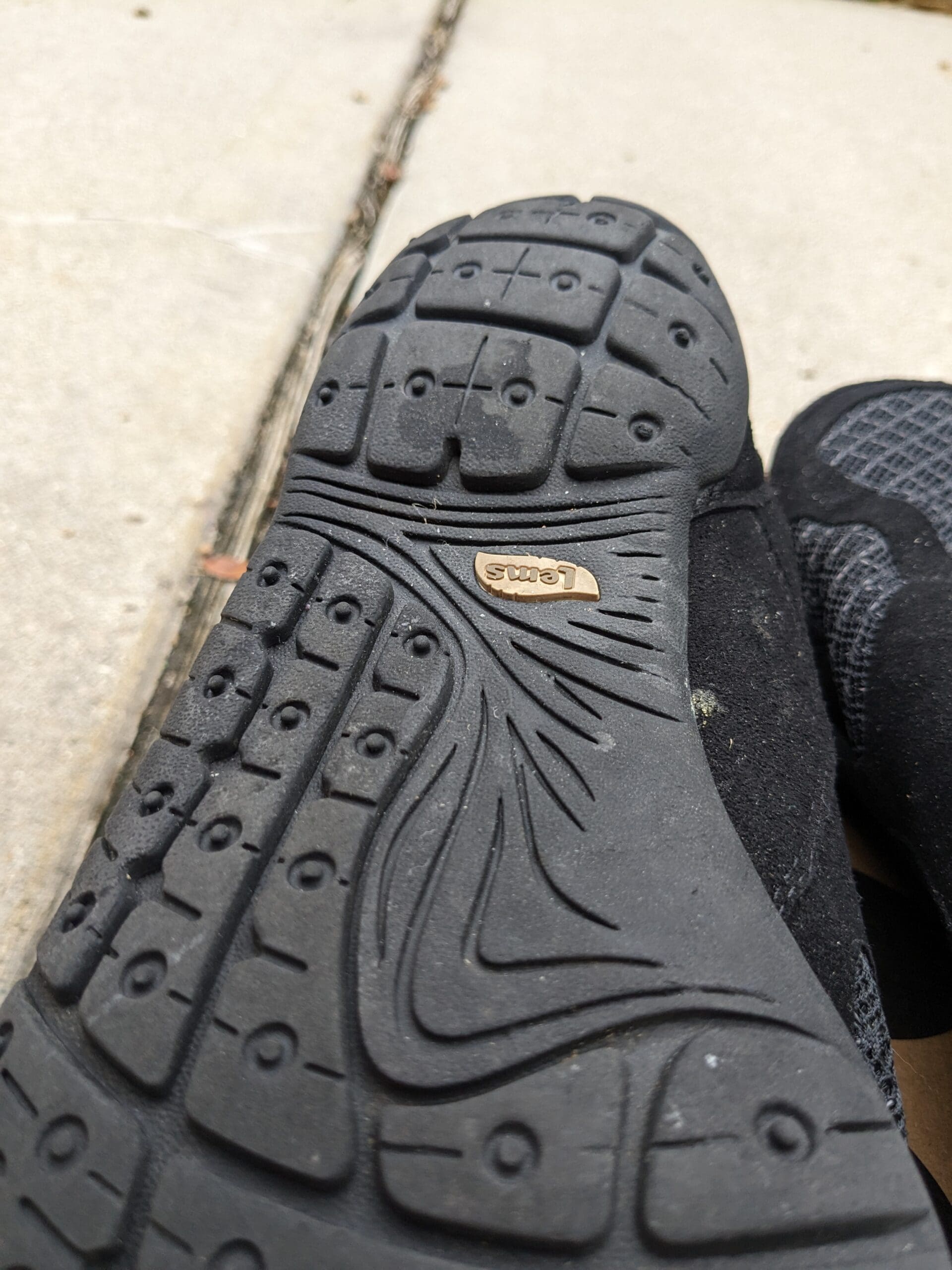
How long will the outsole last?
The sole is made for the road and is thicker than most barefoot shoes. That’s good if you want a shoe that lasts. A little extra rubber will avoid any premature breakdown. And the outsole doesn’t feel too soft, so I don’t expect it’ll wear down quickly.
You could use it on dry trails; nothing will penetrate the rubber. Because the outsole is thicker, you’re at less risk of sharp objects hurting your foot! If it is dry, I would not hesitate to take this shoe out on the trail.
Is the build high quality?
Because of the material used, I would classify the Primal 2 as a high-quality build. And even though some may be put off by the “made in China” label, all the seams and stitching looks solid. I’m impressed.
Are there any weak points of the shoe?
In general, I haven’t found any weak spots in the shoe. I think the outsole will be the first place to wear out, but like I said, it’s thicker and will likely last quite a while, anyway! It’s a durable shoe. What more can I say?
The Lems Primal 2 satisfies a specific foot type in the market—wide forefoot with an average depth and midfoot width. And whereas they’re not created as high-performance shoes, they can certainly work in your running rotation.
These shoes are built for those who have tried barefoot brands but have felt pressure around the big or little toe or maybe want extra width to fit toe spacers. While still not the widest on the market, they sway towards the wider side of the industry.
If you’re looking for a true barefoot feel, the Primal 2 may leave you a little disappointed, and while you can take the insole out to obtain a 9mm stack height, it’s not the same as the 4mm we see in Vivobarefoot and some Xero Shoes.
If you’re looking for true minimal. Try the following shoes.
Xero Shoes Speed Force II
Vivobarefoot Primus Lite III
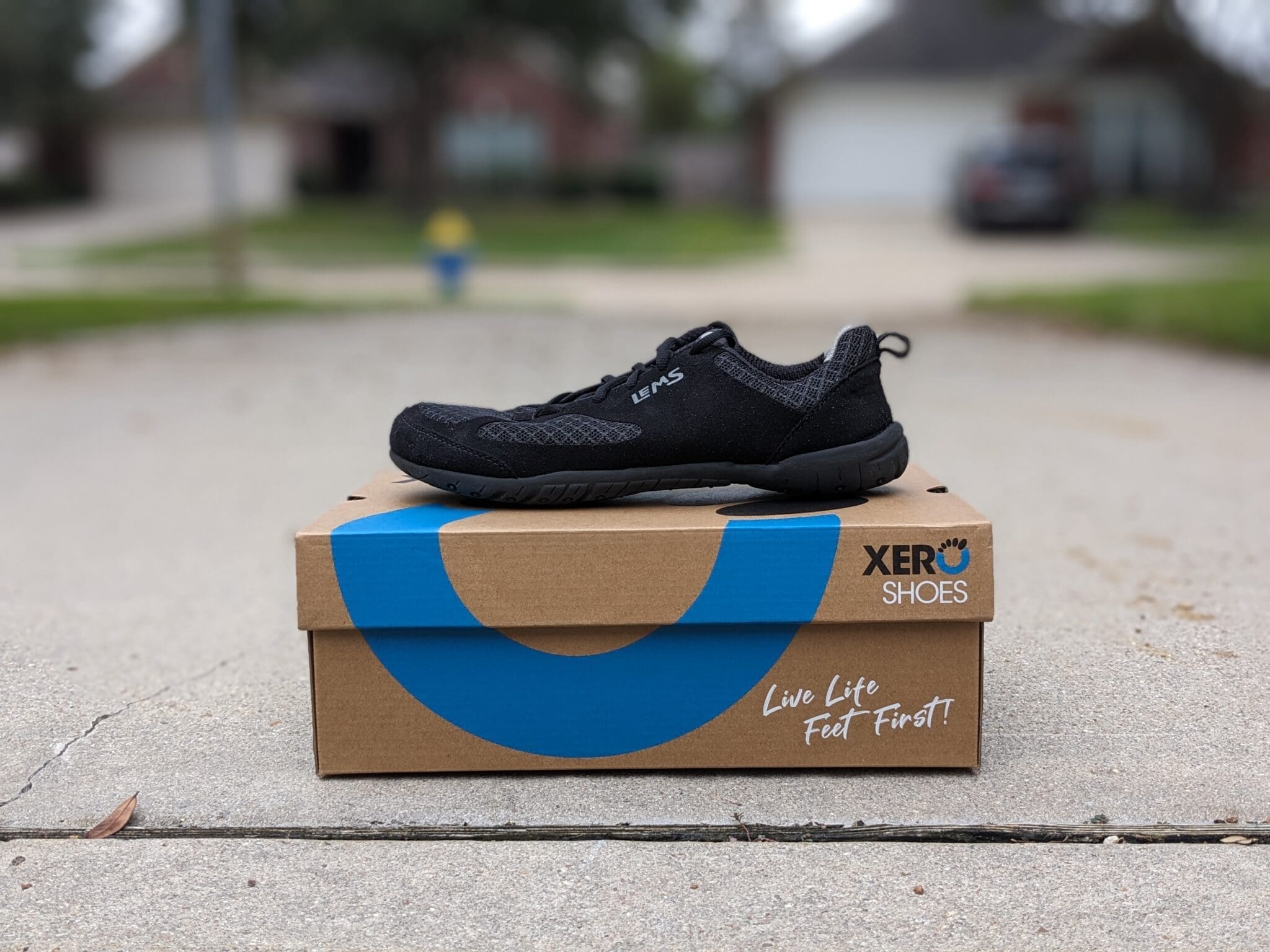
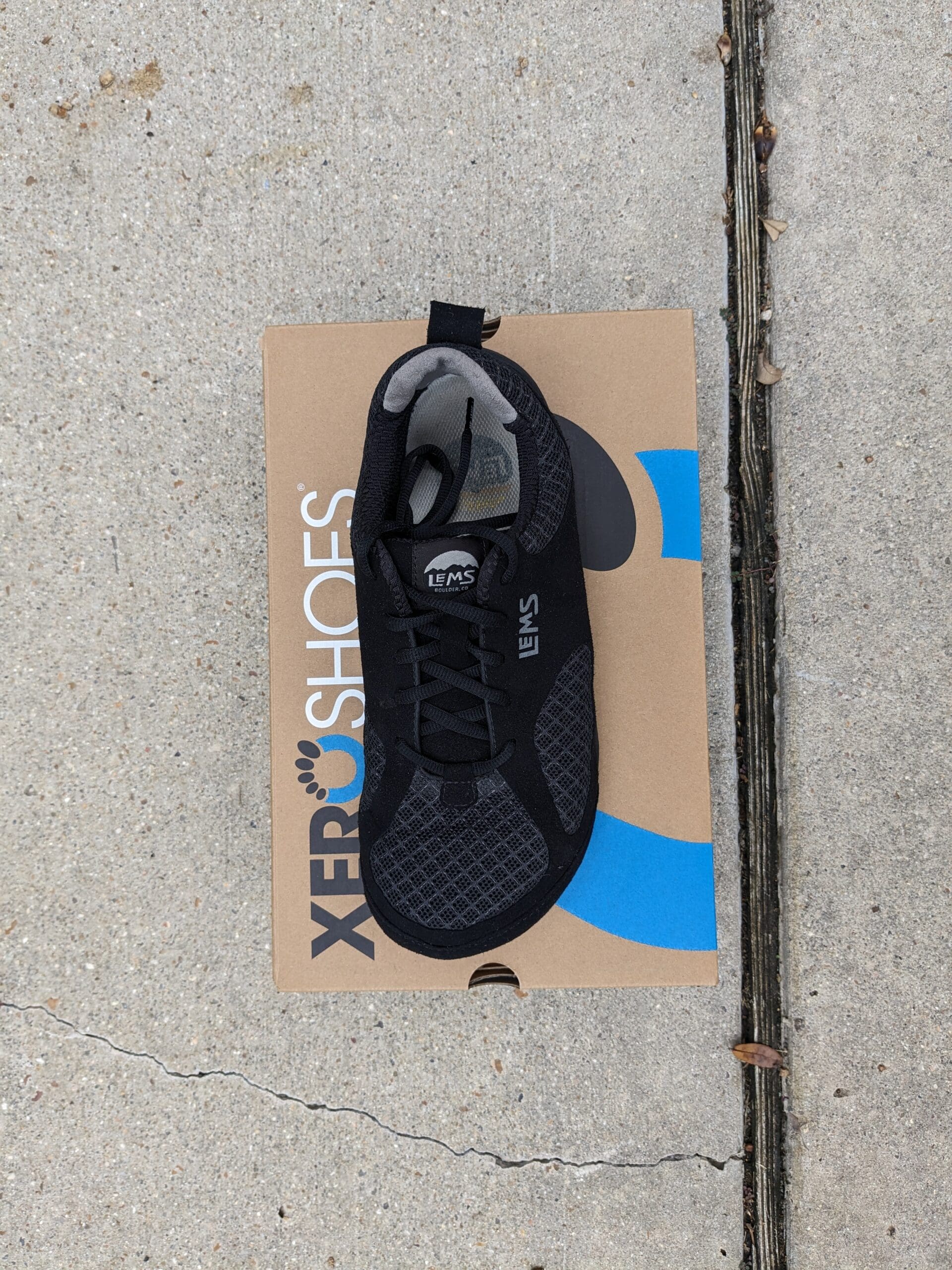
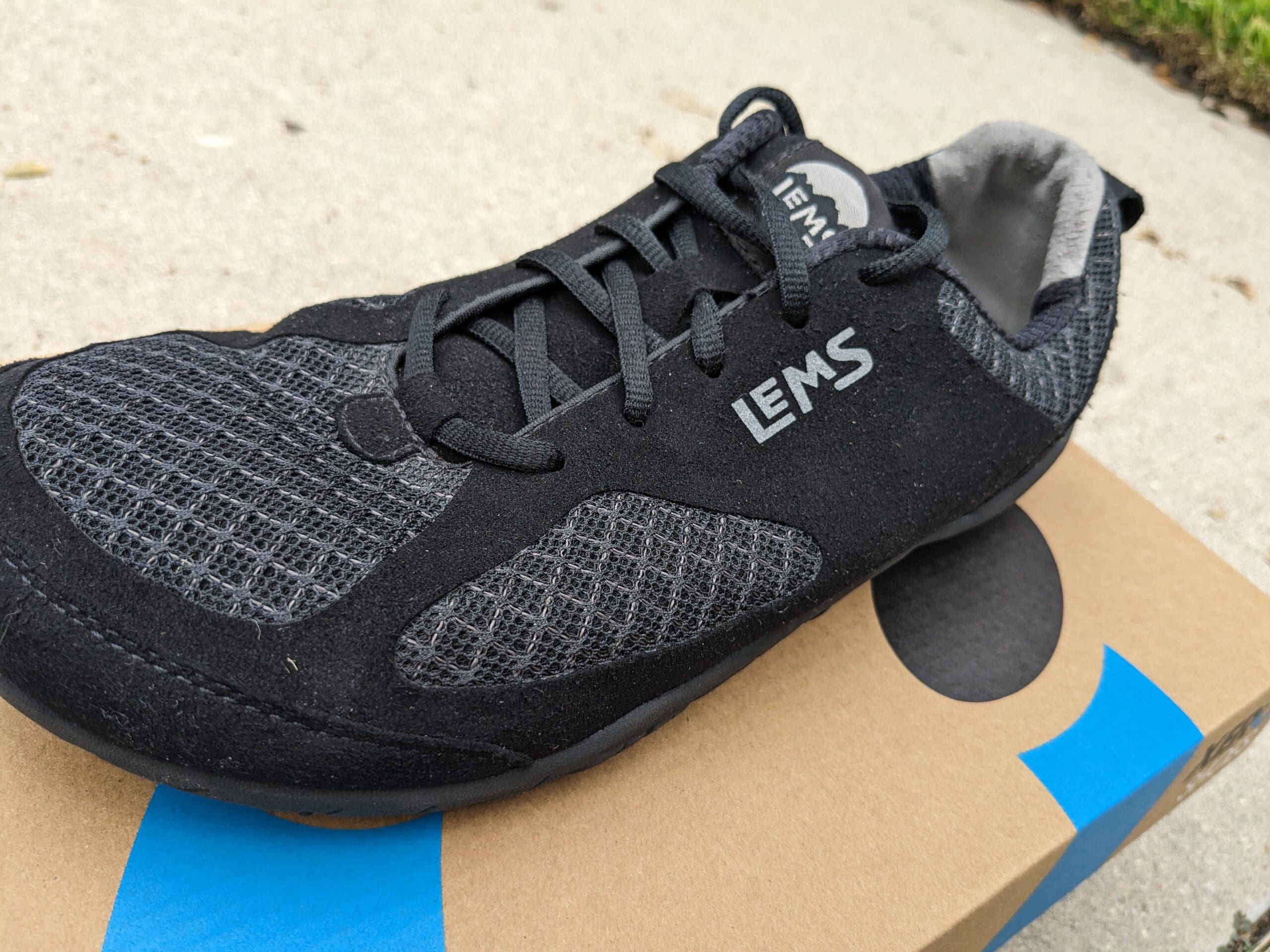
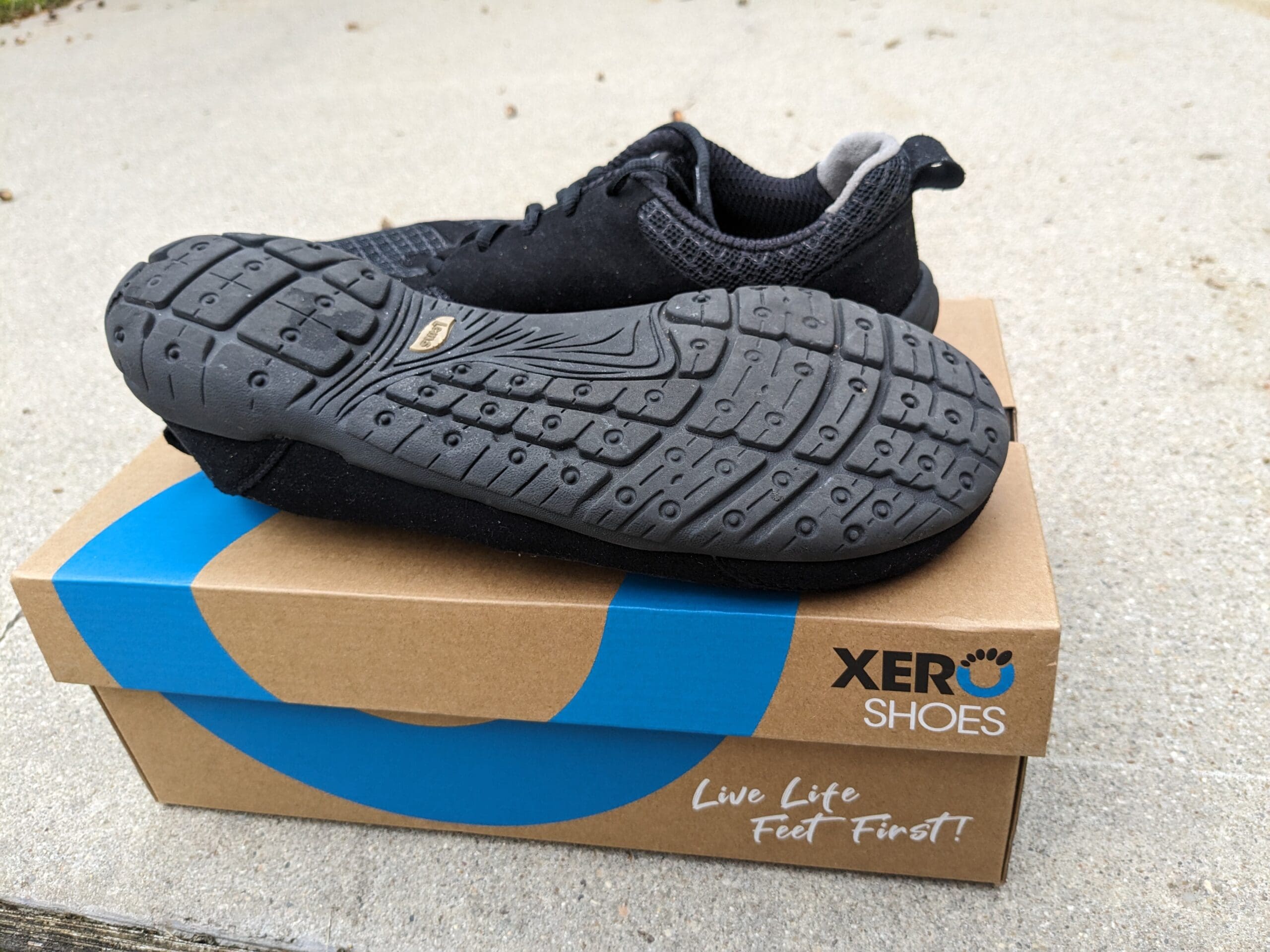
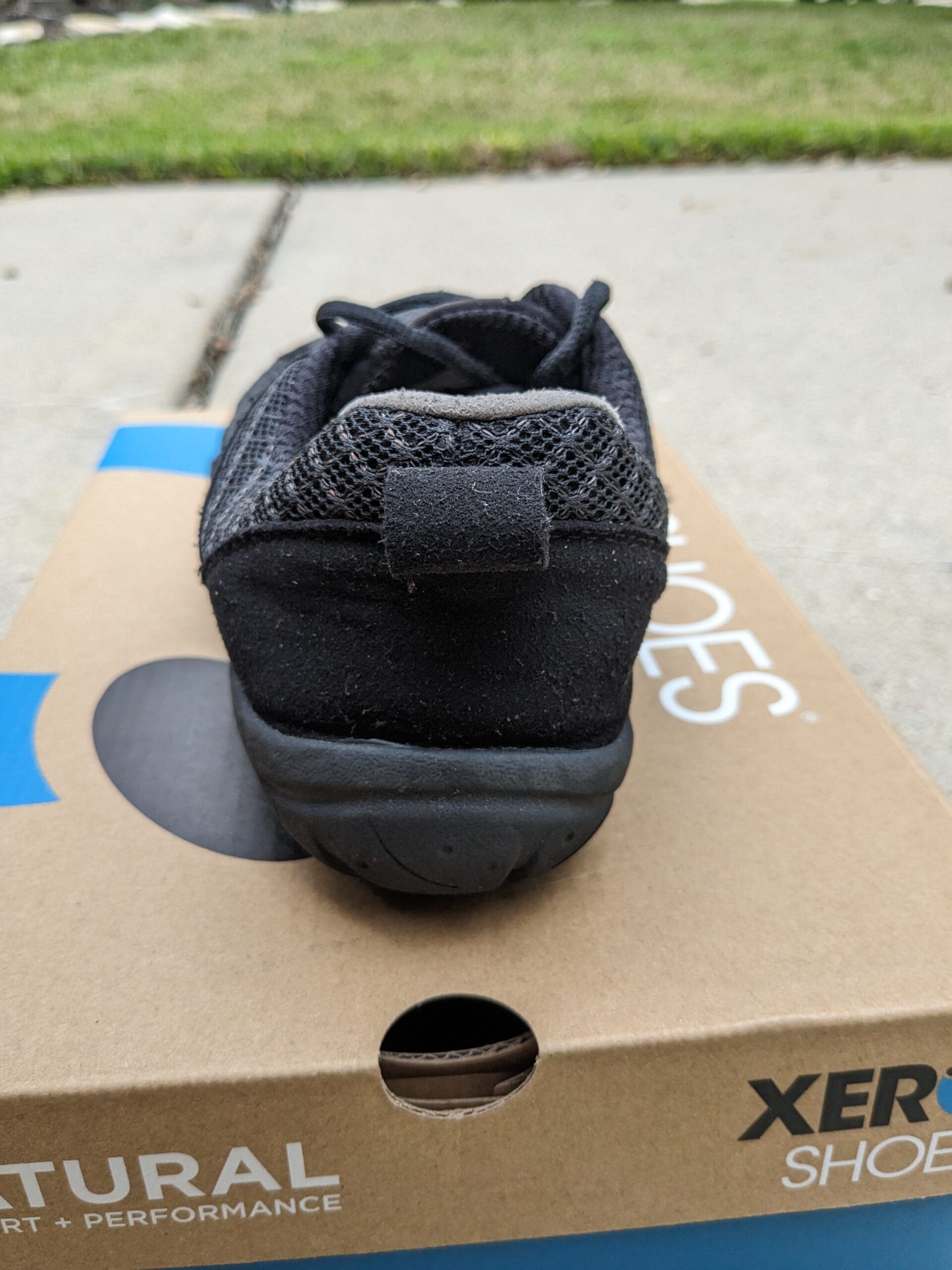
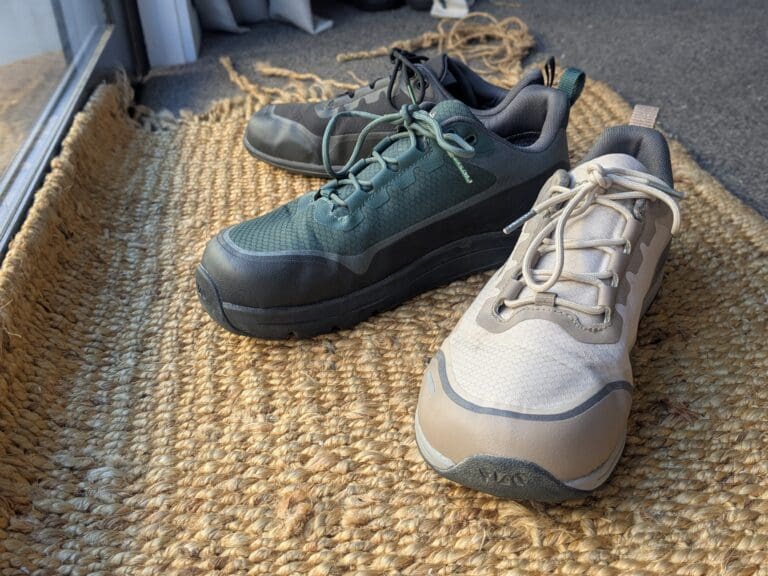
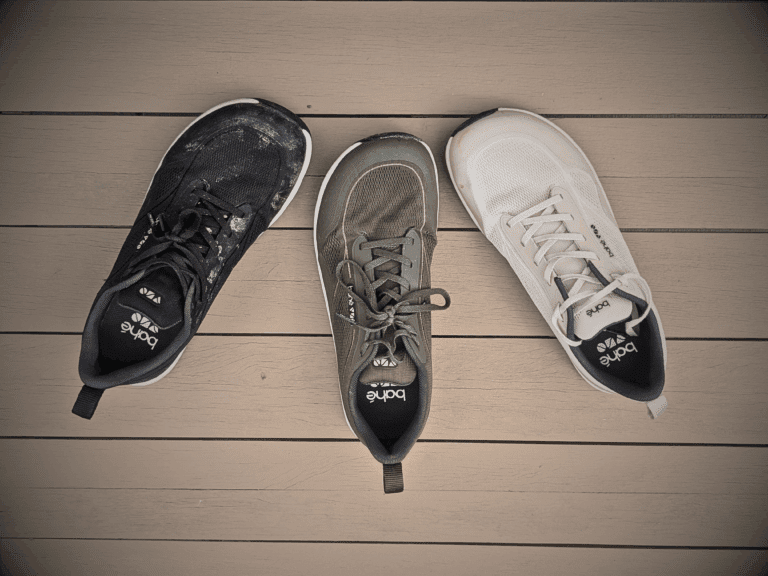
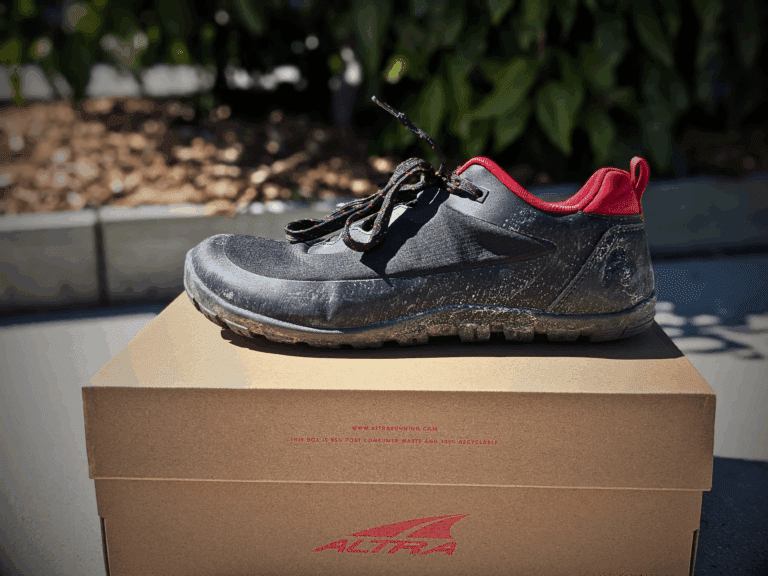
The LEMS Primal 2 were the least durable shoes I ever owned. It’s essentially a sock glued to a sponge. The upper started separating from the outsole after 120 miles. The blown rubber soles were worn down to the webbing after 200 miles and completely worn through by 300 miles. A hole developed in the fabric upper from toe-lift punch-through, also. LEMS customer service told me all this is normal. By comparison, my barefoot shoes from Merrell and Carson Footwear last 1000-1500 miles under the same conditions.
That’s disappointing to hear. But very important for others to hear. Thanks for you sharing your experience.